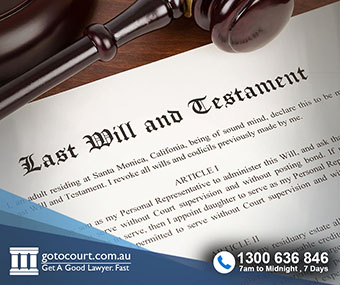Residential Tenancies in NSW
Residential Tenancies in NSW
Residential tenancies in New South Wales are governed by the Residential Tenancies Act 2010, which sets out the rights and obligations of landlords and tenants. Disputes about residential tenancies in NSW are dealt with by the NSW Civil and Administrative Tribunal (NCAT). This page deals with residential tenancies in New South Wales.
What are ‘residential tenancy agreements’?
A residential tenancy agreement is an agreement under which a tenant is given the right to occupy residential premises for use as a residence. The Residential Tenancies Act 2010 places rights and obligations on both landlords and tenants in respect of residential tenancies. For example, a tenant must pay their rent on time and a landlord has an obligation to keep the premises in good repair.
However, some residential leases are not covered by the Act and therefore have different dispute resolution mechanisms. These include:
- tenancies under a mortgage
- tenancies where the tenant is a boarder or lodger
- tenancies relating to part of a hotel or motel, or
- residence contracts under the Retirement Villages Act 1999.
The following information does not apply to these kinds of tenancy arrangements.
Residential tenancy disputes
If you have a dispute relating to a residential tenancy and you are unable to resolve it directly with the other party, you can make a tenancy application to NCAT. NSW Fair Trading also operates a tenancy complaint service where a tenant or a landlord can lodge a complaint, but this is a voluntary process.
How does NCAT work?
NCAT has jurisdiction to hear residential tenancy disputes with a value of $15,000 (or $30,000 for rental bond disputes). Disputes involving larger amounts of money must be brought before a court.
Once a dispute is lodged with NCAT by a landlord or tenant, the Tribunal will send out a ‘Notice of Hearing’ to both parties, which explains when the hearing will be and why it is being held. Before conducting a hearing into a dispute, the Tribunal will encourage the parties to take part in a confidential conciliation process.
If parties cannot resolve the dispute through conciliation, a Tribunal member will hear the dispute and give both parties the opportunity to explain their case, before making a decision. If a party is unhappy with the Tribunal’s decision it can request an internal appeal of the decision, including on questions of law.
Residential tenancies and rent disputes
The Residential Tenancies Act 2010 contains a comprehensive set of rules dealing with the payment of rent, changing the amount of rent payable, and resolving rent disputes.
Tenants must pay their rent by the day set out in their residential tenancy agreement. However, a landlord cannot require a tenant to pay more than two weeks’ rent in advance at any time, or to pay rent for a period before the end of the previous period for which rent has been paid. The tenant is entitled to a rent receipt after each payment if they pay the rent in person.
If rent remains unpaid for a period of 14 days, the landlord may give the tenant a ‘non-payment termination notice’ and seek a termination order from the Tribunal to terminate the tenancy if the termination date in the notice passes. If the tenant fully pays the amount of rent owing before such a termination order is made, then the Tribunal can only make the termination order if the tenant has frequently failed to pay rent on time.
Alternatively, if the tenant has overpaid their rent, they may give the landlord a written request for repayment of the overpaid rent and, if the landlord does not make the repayment within 14 days, apply to the Tribunal for an order that the landlord must do so.
Increases in rent
A landlord can increase the amount of rent payable under a residential tenancy agreement by giving the tenant written notice at least 60 days before the rent is increased. If the landlord fails to five this notice, the tenant can apply to the Tribunal for an order that the rent increase is not payable (provided the application is made within 12 months after the rent is increased).
The tenant can also request an order from the Tribunal that the proposed rent increase is excessive, in which case the Tribunal (at its discretion) can specify a maximum amount of rent for 12 months.
The rent cannot be increased on a residential tenancy agreements that have a fixed term of less than two years unless the increase is specified in the agreement itself. If the rent is increased in contravention of this rule, the landlord can be fined up to $2,200. If the agreement has a fixed term of greater than two years, the tenant can terminate the tenancy for a rent increase by giving the landlord a termination notice.
Reductions in rent
A tenant may request in writing that a landlord reduce the amount of rent payable if the premises become lawfully unusable (eg they breach safety regulations) or if certain goods and services provided with the premises (eg a washing machine) are removed by the landlord. In both cases, if the landlord refuses the tenant’s request, the tenant can make an application to the Tribunal for a reduction in rent.
Residential tenancies and repairs and maintenance disputes
Under the Residential Tenancies Act 2010, a landlord has a general obligation to keep the residential premises in a reasonable state of repair.
If the tenant has to make urgent repairs (up to a maximum of $1,000) and those repairs were not as a consequence of the tenant breaching their residential tenancy agreement, then the landlord must reimburse the tenant for the cost of those repairs within 14 days after being requested to do so by the tenant.
If the landlord does not reimburse the tenant, the tenant may apply to the Tribunal for an order requiring reimbursement. Alternatively, a tenant can apply to the Tribunal for an order that the landlord must carry out the repairs.
Social housing disputes
The Residential Tenancies Act 2010 also applies to social housing arrangements provided by the NSW Land and Housing Corporation and the Aboriginal Housing Office.
A landlord may request that the Tribunal terminate a social housing tenancy arrangement if:
- the tenant is no longer eligible for social housing
- the tenant has been offered alternative accommodation; or
- if the landlord is the New South Wales Land and Housing Corporation, the tenant has breached the terms of any acceptable behaviour agreement between the parties.
If you require legal advice or representation in any legal matter, please contact Go To Court Lawyers.

Affordable Lawyers
Our Go To Court Lawyers will assist you in all areas of law. We specialise in providing legal advice urgently – at the time when you need it most. If you need a lawyer right now, today, we can help you – no matter where you are in Australia.How It Works




1. You speak directly to a lawyer
When you call the Go To Court Legal Hotline, you will be connected directly to a lawyer, every time.

2. Get your legal situation assessed
We determine the best way forward in your legal matter, free of charge. If you want to go ahead and book a face-to-face appointment, we will connect you with a specialist in your local area.

3. We arrange everything as needed
If you want to go ahead and book a fact-to-face appointment, we will connect you with a specialist in your local area no matter where you are and even at very short notice.






















